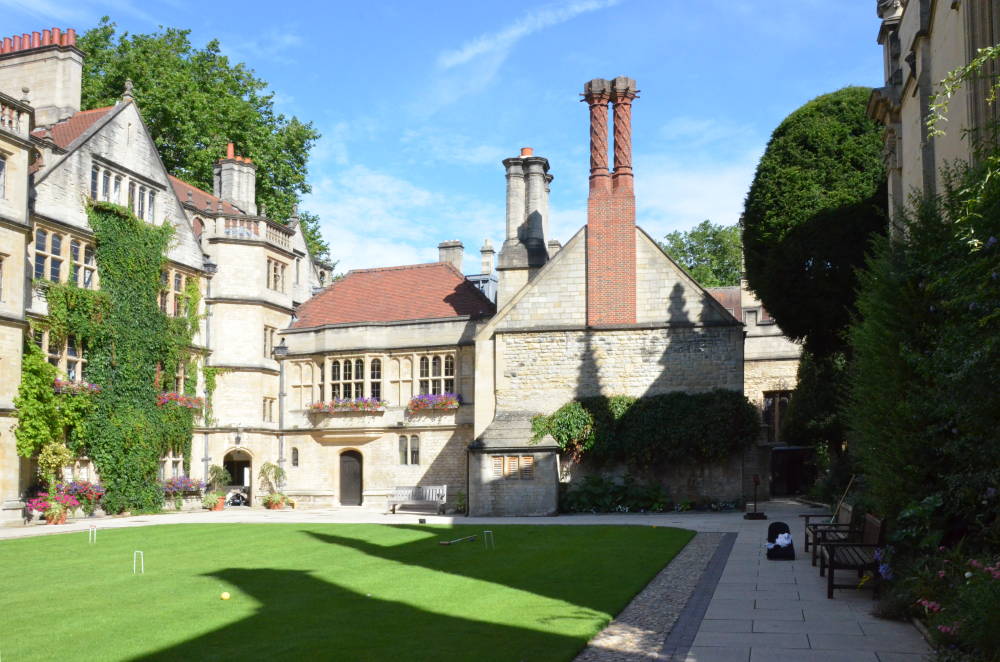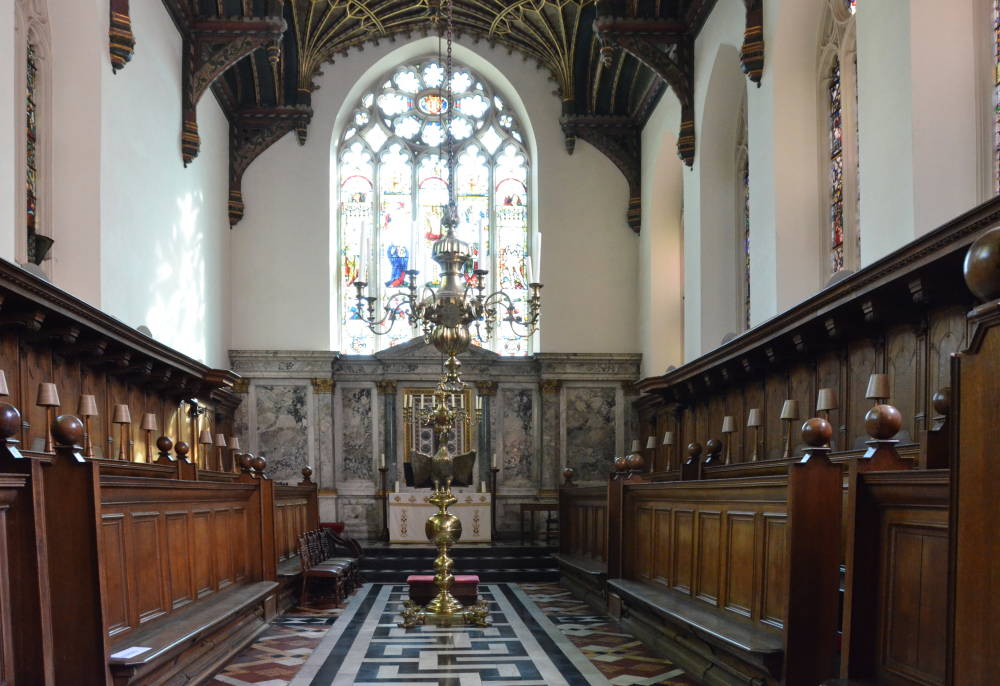
“Brasenose was a hall before it was a college, and a lodging before it was a hall. But it has always occupied the same site, halfway between the Bodleian Library and St Mary's Church, a site at the very heart of Oxford. . . . Brasenose entered the nineteenth century as an Anglican monopoly, a male preserve, independently financed, largely governed by bachelor Fellows in holy orders. The curriculum was narrow—mostly classics, mathematics, and divinity—and the basis of recruitment narrower still. . . .”
“An Oxford college is a permanent set of buildings and an impermanent set of people. Its context is multifarious. As an institution, its history is a microcosm of the history of England. National and international events—the Reformation, the civil war, the age of reform, the First and Second World Wars, the emergence of mass democracy—each left its imprint on the lives of individual dons and students. . .”

“Soldiers and novelists; priests and politicians; lawyers and sportsmen; eccentrics, tycoons, and travellers—Brasenose has seen them all, and their variety is bewildering. Once we had martyrs and theologians; then we had landowners and manufacturers; then clerics and schoolmasters, barristers and judges; now we have managers aplenty and executives galore. The obvious establishment trophies are here: we have a Prime Minister (Henry Addington, Viscount Sidmouth), a Lord Chancellor (Thomas Egerton, Baron Ellesmere), a Commander in Chief (Earl Haig), and an Archbishop of Canterbury (Lord Runcie). Over the years, we have produced six archbishops and more than fifty bishops. And our tally of judges is almost too numerous to count.” [J. Mordaunt Crook, 2-3]
Discussions
- Brasenose College, Oxford: Why “Brasenose”?
- Social and cconomic stratification in pre-Victorian Oxford — the example of Brasenose
- Education in Georgian and Early-Victorian Oxford
Modern photographs
- Exterior of the college viewed from Radliffe Square
- Exterior of the college viewed from the High
- The Old Quad
- The New Quad
- Deer Park
- The Hall
- The Chapel
- Stained glass at the college

Victorian photographs
Brasenose College in art
- Saint Mary's entry and Brasenose College
- Brasenose College Quad.
- Bacon Faced Fellows of Brzen Nose, Broke Loose by Thomas Rowlandson
- The New Front of Brasenose College to High Street
Bibliography
Brasenose College. The college website. Web. 20 August 2012.
Crook, Joseph Mordaunt. Brasenose: The Biography of an Oxford College. Oxford University Press, 2008. [review by George P. Landow]
Great Britain. Ed. Findlay Muirhead. “The Blue Guides.” London: Macmillan, 1930.
Last modified 15 May 2019